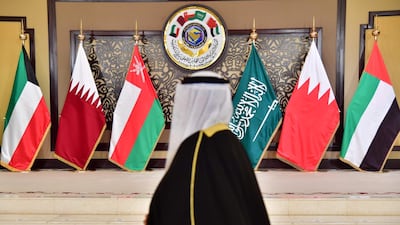Saudi Arabia, the UAE, Bahrain and Egypt will file a complaint on a dispute with Qatar over the use of airspace to the UN’s International Court of Justice.
The four Arab countries said that the UN’s International Civil Aviation Organisation “was not competent to consider the dispute” after it considered two requests submitted by Qatar, the Saudi Press Agency reported on Wednesday.
The quartet cut all diplomatic and transport ties with Doha in June last year over its support of terrorists and interference in other nations’ affairs.
Qatar last year raised the boycott at an ICAO meeting, claiming that the four countries were discriminating against Doha in violation of an international agreement guaranteeing overflights.
Qatar requested the ICAO resolve the conflict, using a dispute resolution mechanism in the Chicago Convention, a 1944 treaty that created the agency and set basic rules for international aviation.
“This action by the four countries to submit the case to the International Court of Justice comes in view of the decision of the ICAO council to grant Qatar the opportunity to hear its demands, which did not include the support of these demands or to call upon the four countries to take any action,” the quartet said in a statement.
The four countries said that they are appealing to the court, while the ICAO will cease to consider Qatari claims until a ruling from the International Court of Justice is issued and “coincides with the continued exercise by the four states of their sovereign right to close the airspace to Qatari aircraft under international law”.
“It should be noted that the ruling when it is issued will determine the validity of the decision of the ICAO on enabling Qatar to submit the two complaints, and does not in any way accept the allegations of Qatar or the imposition of opening the airspace or anything else that detracts from the sovereign rights of the four countries.
“In spite of this objection, the four states will continue their fruitful co-operation with the organisation and its member states.”
Saudi Arabia, the UAE, Bahrain and Egypt have said they would allow Qatari planes to use air corridors in emergencies.
_________________
Read more
Qatari aggression against UAE passenger aircraft recognised by UN world aviation body
Qatari fighter jet ‘threatens safety’ of UAE civilian aircraft
UAE files complaint over ‘aggressive actions’ by Qatar against its civilian aircraft
Qatar fighter jets came with ‘200 meters of UAE civilian aircraft’
_________________
The quartet's announcement comes as Qatar planned to take the UAE to the International Court of Justice on Wednesday over what it described as human rights breaches.
Qatar said it believed the boycott is in violation of the International Convention on the Elimination of All Forms of Racial Discrimination (CERD) — including discrimination on the basis of nationality — of which the UAE and Qatar are both signatories.
Saudi Arabia, Bahrain and Egypt are not signatories of the CERD convention.
Qatar requested that the court order the UAE to take steps to comply with its obligations under the CERD, ceasing and revoking the measures and restoring the rights of Qataris. However, the UAE’s position is based on its sovereign right to cut ties and decide who it admits to the country.
The four Arab countries stand firm by their decision to boycott Qatar, saying they are willing to re-establish communications with Doha only if it adheres to regional and international agreements and the demands and principles they have issued.
Doha has so far refused to meet the quartet's 13 demands — including the closure of Qatar-owned Al Jazeera news channel, which the quartet says provides a platform for extremists and dissidents.

